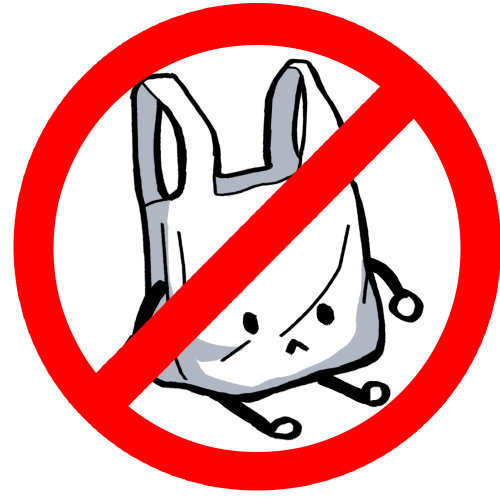SB 270 Intends to Implement Ban on Plastic Bags: Paper or Paper?

JADE LIEU
Staff Writer
“Paper or plastic?” This is the frequently asked question in stores nationwide that provide bags at their checkout stations. But what if stores did not supply the bags at the checkout counter, but rather had customers bring their own After three unsuccessful attempts to ban single-use plastic bags, California lawmakers compromised to make a bill on Jan. 23, which banned single-use plastic bags from grocery stores.
California will be the first state to ban single-use plastic bags. As a result, Californian shoppers will have to bring their own reusable bags or pay 10 cents for a paper bag at the checkout area. The new bill, formally known as Senate Bill 270, will apply to grocery stores and supermarkets starting July 2015, eventually extending to pharmacies and liquor stores by 2016.
“[This bill] is a good idea because it will encourage people to use reusable shopping bags. Single-use plastic bags pollute the environment and use up fossil fuels,” environmental science teacher Daniel Hyke said.
According to a statement by state senator Kevin de Leon in the LA Times, the new proposal will dramatically decrease the number of plastic bags found on beaches. The state will retool manufacturing plants by tapping into the recycling funds and extract $2 million. The bill will require reusable bags to be at least 20 percent recyclable material and strong enough to withhold 100 uses, and will be expected to rise to 40 percent of recycled content by the year 2020.According to the LA Times, the 10 cent fee is intended to reimburse the retailers while also encouraging shoppers to bring their own reusable bags.
Many argue that the new ban will cause more harm than good, according to the Los Angeles Daily News. Manufacturers of single-use plastic bags will be damaged economically by diminishing the need for workers. This also inconveniences shoppers, as most people rely on the grocers to supply them with plastic bags. Some say that if they buy products from a store, they expect a bag to be given to them for free.
“They’re making us pay for paper bags, it wastes our money and not even half the population recycles paper. There will still be litter and waste so it [doesn’t] really solve much,” sophomore Jackie Lam said.